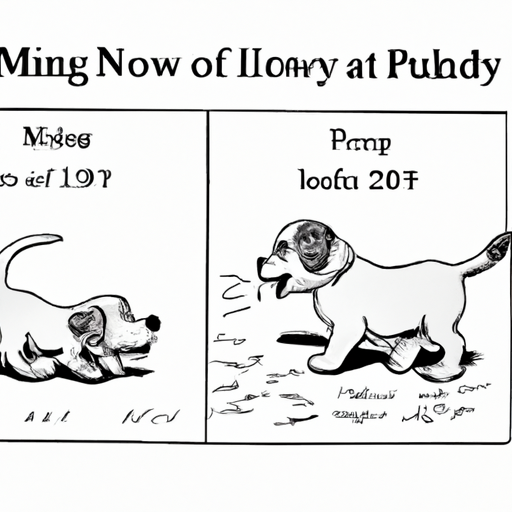As a caregiver, you may often wonder, “how long is a dog a puppy?” This question has multifaceted answers, and it’s not as straightforward as it seems. It depends on a variety of factors including the breed of the dog, their individual health, and their unique development rate. In this article, we will explore this topic in depth, providing you with all the information you need.
The Definition of a Puppy
A puppy is a young dog. Some people may define a puppy by its age, while others may consider size or development stage. According to most veterinarians and breeders, a dog remains a puppy until it is about one year old.
The Developmental Stages of a Puppy
Understanding the developmental stages of a puppy can give you a clearer picture of when a puppy transitions into adulthood.
- Neonatal Period (0-2 Weeks): At birth, puppies are blind, deaf, and toothless. Their primary activities are eating and sleeping.
- Transitional Period (2-4 Weeks): Puppies begin to open their eyes, develop teeth, and start to walk during this stage.
- Socialization Period (4-12 Weeks): This is a critical period for puppies to be exposed to different environments, animals, and people.
- Juvenile Period (3-6 Months): Puppies start to lose their baby teeth and grow adult teeth. They also begin to understand hierarchy and submission.
- Adolescence (6-12 Months): This stage is characterized by increased independence, sexual maturity, and often, behavioral issues.
Factors Affecting Puppyhood Duration
The length of a dog’s puppyhood can also be influenced by the following factors:
- Breed: Larger breeds tend to mature slower than smaller breeds.
- Nutrition: Proper nutrition is essential for a puppy’s development. Malnutrition can delay growth and maturity.
- Health: Health issues may slow down a puppy’s growth and prolong their puppyhood.
The Transition from Puppy to Adult
Transitioning from puppy to adult is a gradual process. Here are some signs that your puppy is growing into an adult:
- Physical Changes: Your puppy will begin to grow taller and gain weight. Their physical growth will slow down, and they will start to look more like an adult dog.
- Behavioral Changes: Your puppy may start to show less hyperactivity and become calmer.
How to Care for a Growing Puppy
As your puppy grows, their needs will change. Here are some tips on how to care for a growing puppy:
- Diet: Gradually transition your puppy from puppy food to adult dog food.
- Exercise: Regular exercise is essential for a puppy’s physical and mental health.
- Training: Continue with obedience training and socialization.
When is a Dog Considered an Adult?
In general, dogs are considered adults when they reach one year of age. However, larger breeds may take up to two years to fully mature.
Frequently Asked Questions
Q: When should I switch my puppy to adult food?
A: You should start transitioning your puppy to adult dog food when they reach about 90% of their expected adult size. This typically happens around one year of age, but it may be earlier for small breeds and later for large breeds.
Q: When will my puppy stop growing?
A: Most dogs stop growing by the time they are one year old. However, large breeds may continue to grow until they are two years old.
Q: When will my puppy calm down?
A: Most puppies start to calm down as they approach adulthood. But remember, every dog is unique, so your puppy may still have bursts of energy well into their adult years.
Q: How can I help my puppy transition to adulthood?
A: Gradual changes in diet, consistent training, and regular exercise can help ease your puppy into adulthood.
In conclusion, the length of a dog’s puppyhood can vary based on several factors. It’s crucial to understand these stages and provide appropriate care to ensure your puppy grows into a healthy and happy adult dog.



